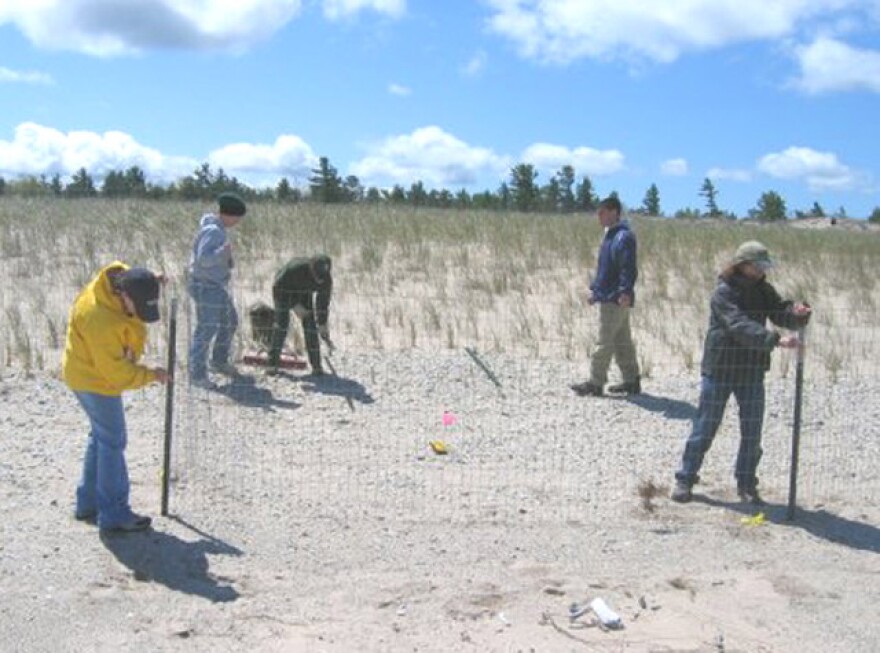RJ Wolcott of the Grand Rapids Press spoke with the U.S. Fish and Wildlife Service's Vince Cavalieri about the return of the piping plover.
The endangered birds winter along the Gulf of Mexico, the southern Atlantic coast and in the Caribbean. Cavalieri says breeding pairs will soon arrive along the coasts of the northern Great Lakes.
In Michigan, these birds can be found along the coasts of Lake Michigan, places like the Sleeping Bear Dunes and Ludington State Park.
Piping plovers were first listed as an endangered species in 1985 when there were only 19 breeding pairs left in the Great Lakes region. With the listing, researchers, conservationists and volunteers have been working to protect the species by surveying and protecting nesting areas and tracking the birds.
Today there are around 70 pairs of piping plovers in the Great Lakes region.
More from Wolcott of the Grand Rapids Press:
Cavalieri said conservationists would like to see about 150 pairs, though he said efforts to boost their populations have proven fruitful. "When we place the enclosures to protect the bird's eggs, we see about a 90 percent hatch rate compared to 30 percent without," Cavalieri said. So long as volunteers can be found and interest in preserving the Piping Plover holds, Cavalieri is hopeful for the future.
I got a much better understanding of how these birds became endangered when I visited a nesting area in 2005. They're tiny. And they like to lay their eggs in the tiny rock bands on the upper part of a beach.
It would be easy to trample their eggs. They blend in.


To protect their eggs, volunteers put up signs and place cages around the nests. The birds can come and go, but people and predators can't get in.
Take a listen below to the volunteers in action (and listen for the peeps of the Plover once she's flushed from her nest).
If you're interested in helping to protect piping plovers, check out this page from the East Lansing U.S. Fisheries and Wildlife Services office.












